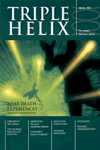The Human Rights Act 1998 came into force in England, Wales and Northern Ireland on 2 October 2000, having had effect in Scotland before. Article 2 states: 'Everyone's right to life shall be protected by law. No one shall be deprived of his life intentionally...' and then makes well-recognised exceptions for capital punishment and self defence. This right is the most fundamental of all, and ethicists were waiting to see its impact on medical law. We did not have to wait long.
On 5 October two cases of women in permanent vegetative state came before Dame Butler-Sloss, president of the High Court family division. The question was whether tube-feeding could still lawfully be withdrawn, as it has been occasionally since the landmark verdicts on Tony Bland[1] which controversially established that treatment that confers no benefit on a patient, including artificial nutrition and hydration, may be stopped. Would the new Human Rights Act affect this?
A mere day later, after evidence and legal submissions (and significantly the Official Solicitor did not oppose the applications) the declaration came that artificial feeding was not in the patients' best interests and could be withdrawn.[2] The 'Right to Life' law has thus made not a blind bit of difference.
However, the two patients remind us every case is different. Pro-life observers in court said that in Mrs H the surgery needed to replace her blocked tube would indeed have been a disproportionate burden, and they therefore did not think there was any intention to kill. Mrs M was typical of court cases post-Bland, but in the eight years since that verdict, only about 20 cases of PVS have come before the British courts out of the several thousand who have entered PVS and left it by natural death. The intuitions of 99% of professional and family carers are that tube-feeding in PVS should be continued, and so far there have been few deaths due to withdrawing food and fluid.
'Hard cases make bad law' and CMF members may disagree about the management of PVS, but this verdict at least reminds us of the clear and present danger of backdoor euthanasia. The risk is that if we end patients' lives intentionally by deliberate omissions of basic care, we will come to end them by deliberate acts of commission.
































